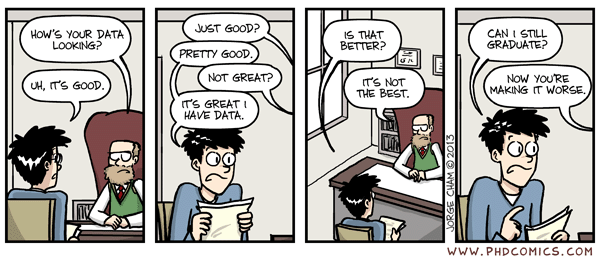
To keep research reliable and reusable (= useful! ) for other research(ers)
Research Data Management (RDM) helps you to make conscious decisions about your research data and keeps your data safe. It also saves you time and enables the reuse of your data.
From the point of view of scientific integrity the data that are used in your research should be verifiable and secure
NOTE: You will always archive and publish your data in accordance with faculty regulations. Discuss the implications of managing your data at an early stage with your supervisor.

The definition of research data is very broad. All digital and nondigital information which is generated as part of the scientific process and on which scientific conclusions are based counts as research data.
Research data can take on many forms, e.g.:
In the course of the data life cycle you may want a secure place to store your data.
A data management plan is a formal document written at the start of the research (of your thesis). It provides an overview of all aspects regarding data management during and after your research.
A data management plan is a dynamic document that requires updating from time to time. The different stages of the data life cycle (see figure below) are covered in a data management plan.
You may share and discuss your data management plan with your supervisor, who can give you feedback.

 |
Analysed data = research data that has been analysed and upon which you can base your conclusions. Archiving = storing research data so it is not accessible to the public, often for the purpose of scientific integrity. Ethics committee = a committee that assesses the ethical aspects of research projects before the research is conducted. Informed consent = a document in which a participant gives their explicit consent to collect, use, store, share or publish their (personal) data. Models = data that have been processed into a computer model, a calculation sample, or a formula. Personal data = all information that relates to a living identifiable individual, directly or in combination with other data. Processed data = raw data that has been organized in some way and can be used for analysis. Publishing = making research data available for re-use. This is not common for students. Raw data = data in the state in which it was collected, which has not yet been processed or analysed. |